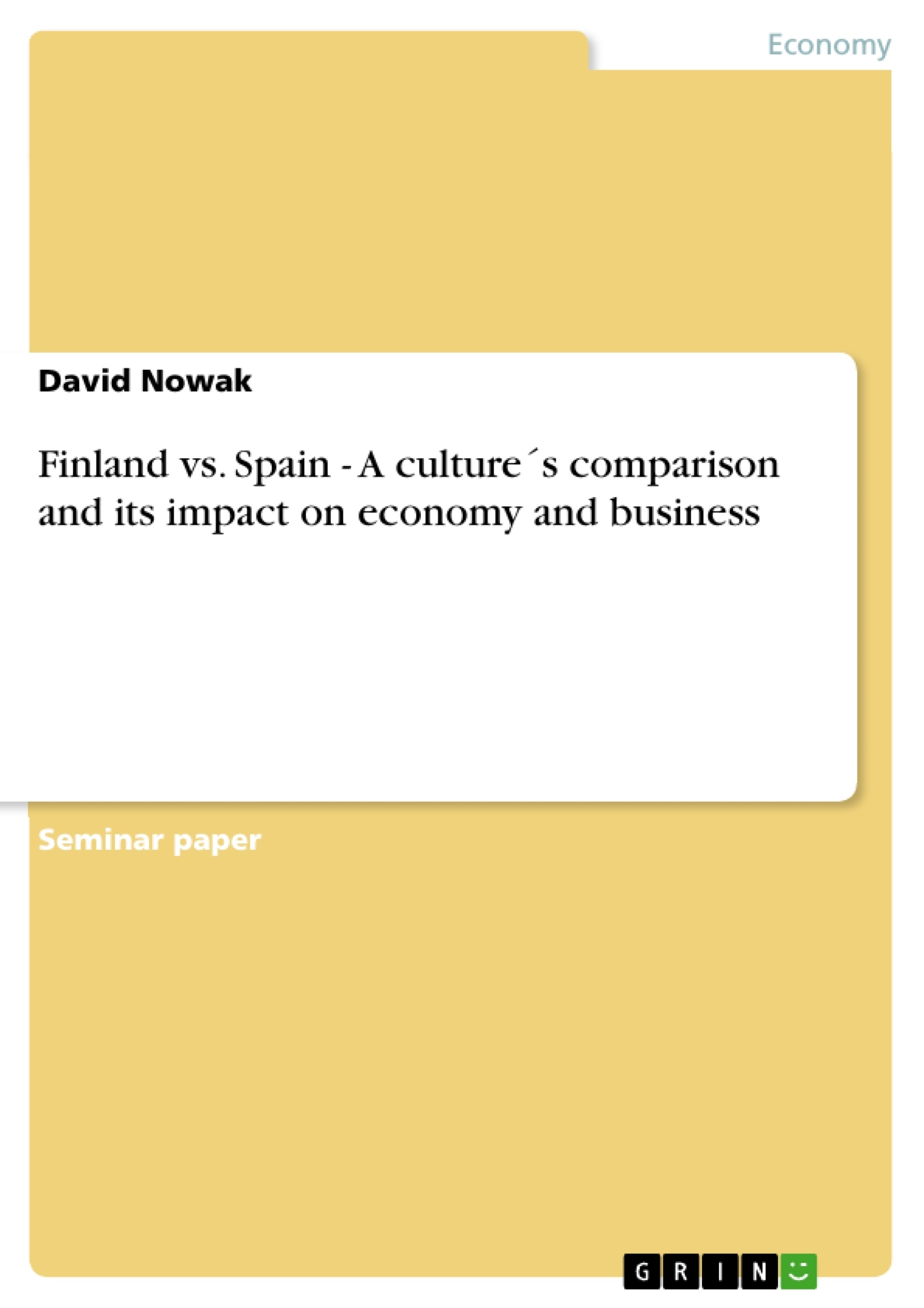The subject of "intercultural communication" is beset a major problem, since there is really very little agreement on what people mean by the idea of culture in the first place. The word "culture" often brings up more problems than it solves. On the one hand, we want to talk about large groups of people and what they have in common, from their history and worldview to their language or languages or geographical location. This common meaning often emphasizes what members of these groups have in common and at the same time plays down possible differences among members. Cultures, however, are large, superordinate categories- they are not individuals.
Inhaltsverzeichnis (Table of Contents)
- Introduction
- Spain
- Basic Overview
- Land & People
- Historical & Economic Development
- Finland
- Land & People
- Historical & Economic Development
- Comparison of Basic Cultural Elements
- Cultural Values, Beliefs and Attitudes
- Time
- Attitudes Towards Law & Government
- Language
- Business Ethics
- Individual Actions of the People
- Management Actions
- Women
- Cultural Values, Beliefs and Attitudes
- The Culture's Impact on Economy and Business
- Spain
- Finland
- Bibliography
Zielsetzung und Themenschwerpunkte (Objectives and Key Themes)
This seminar paper aims to compare the cultures of Finland and Spain and analyze their impact on economy and business. The primary focus lies on identifying cultural differences and similarities, with a particular emphasis on their effects on business practices.
- Cultural Values, Beliefs, and Attitudes
- Language
- Business Ethics
- Impact of Cultural Differences on Economic Performance
- Comparison of Business Practices in Finland and Spain
Zusammenfassung der Kapitel (Chapter Summaries)
The paper begins with an introduction that discusses the complexities of defining culture and its role in shaping individual and societal behavior. It then presents a brief overview of the countries being compared, Spain and Finland, focusing on their historical and economic development. The paper then delves into a detailed comparison of the two cultures, examining their values, beliefs, attitudes, language, and business ethics. This analysis considers various aspects of cultural behavior, such as time perception, attitudes towards law and government, and communication styles in business settings.
Schlüsselwörter (Keywords)
The paper focuses on the key terms of intercultural management, cultural comparison, Finland, Spain, cultural values, beliefs, attitudes, language, business ethics, and economic impact.
- Quote paper
- David Nowak (Author), 2001, Finland vs. Spain - A culture´s comparison and its impact on economy and business, Munich, GRIN Verlag, https://www.grin.com/document/1558




